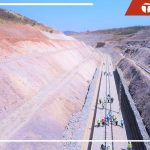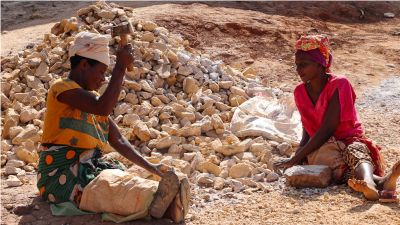An investigation by La Guardia Magazine highlights the severe health consequences of intensive cobalt mining in Kolwezi, DRC, particularly on women’s reproductive health.
From 2018 to 2023, cobalt production surged by 63%, increasing from 104,000 tons to 170,000 tons due to rising global demand for this essential mineral for energy transition. However, this accelerated exploitation poses significant environmental and health risks, especially in the Musonoï district.
Located less than two kilometers from Kolwezi’s center, Musonoï overlooks an open-pit mine operated by Compagnie minière de Musonoï (COMMUS), a subsidiary of the Chinese Zijin Group.
Homes are situated less than 500 meters from the mine, with residents reporting frequent air and water pollution affecting their health. Drinking water is scarce, and the air is laden with toxic dust, posing serious risks to local women.
La Guardia Magazine’s investigation reveals alarming reproductive health issues among women in Musonoï. One resident, Angèle, shared, “I’ve had four successive abortions in the last three years.” Julie Nshinda, a nurse at the “La Trinité” clinic, reports that 5 to 10 women consult for reproductive health problems each month—about a hundred cases annually. She has also noted instances of birth defects; on July 27, a baby was born with a severe skull malformation and did not survive.
NGOs RAID and AFREWATCH, cited in the report, confirm that industrial mining activities are exacerbating health issues in nearby communities, leading to increased cases of miscarriages, urogenital infections, and birth defects.
Researchers from the University of Lubumbashi and Brussels have detected high levels of cobalt, copper, arsenic, and other toxic substances in the local water, air, and soil.
While COMMUS claims to adhere to environmental standards and is committed to “clean” cobalt production, the mounting evidence of pollution and resident complaints has prompted the Musonoï community to call for immediate action to protect their health and environment.















